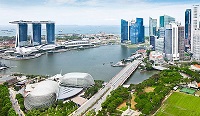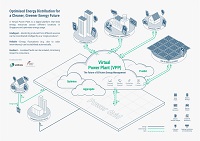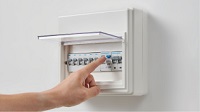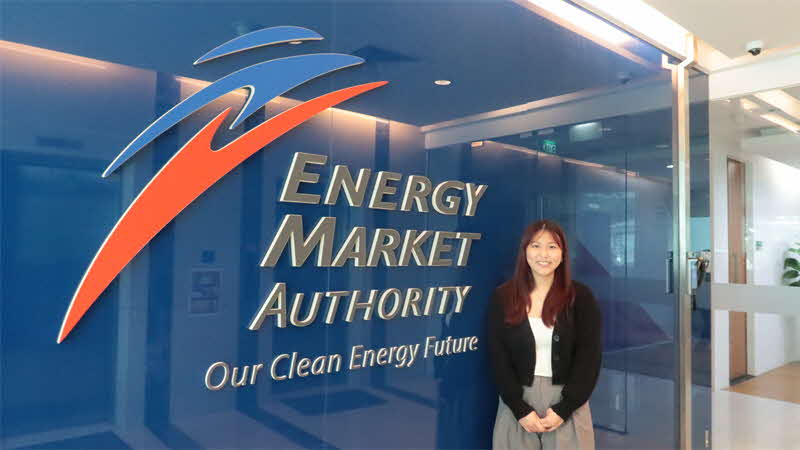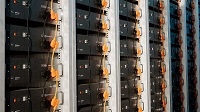For more information, please refer to:
- The Ministry of Trade and Industry (MTI), the Energy Market Authority (EMA), and International Tracking Standard Foundation (I-TRACK Foundation) will develop a framework for Cross-Border Renewable Energy Certificates (RECs) that is relevant for Southeast Asia.[1]
- Today, the use of RECs to track renewable energy and their environmental attributes across borders is complex due to differences in government regulations in Southeast Asia. The Framework aims to help countries to standardise their approaches for the tracking and accounting of cross-border RECs across three areas: how they track the physical flow of electricity and the corresponding RECs; which REC registries and instruments are permitted for cross-border electricity trading transactions; and the approach for calculating the residual mix.[2] This framework will give companies that purchase cross-border RECs greater confidence to make exclusive claims for their sustainability reporting, without concerns that the same unit of renewable electricity is being claimed by some other entity. This framework can also serve as a pathfinder project to complement ongoing efforts by the ASEAN Centre of Energy to develop an ASEAN regional REC framework by 2027.
- When completed, the Framework will provide a template for user countries to account for the RECs associated with cross-border electricity trading. In addition, countries can use the Framework to align with relevant internationally accepted standards for cross-border RECs and illustrate how global best practices are being implemented in their energy markets. One example is the International Cross-Border Electricity Trading Standards and Best Practices being developed by the I-TRACK Foundation, which will set out detailed implementation requirements for the tracking and accounting of cross-border RECs.[3]
- MTI and EMA have commenced industry consultation on the draft Framework in Annex A, with support from like-minded organisations including the Climate Group’s RE100 initiative, the ASEAN Centre of Energy, the Asia Clean Energy Coalition, and the global microelectronics industry association, SEMI. Please see Annex B for quotes from these supporting organisations.
- Ms Gan Siow Huang, Minister of State for Ministry of Trade and Industry, said, “The Cross-Border REC Framework reflects Singapore’s commitment to advancing credible cross-border electricity trade and fosters regional collaboration for renewable energy development. I am encouraged by the support from organisations across the renewable energy ecosystem, which underscores the value of this initiative in strengthening the commercial viability of renewable energy projects in the region.”
- Mr Puah Kok Keong, Chief Executive of EMA said, “As Singapore’s and the region’s energy systems evolve, ensuring credibility and trust in REC transactions will be key to driving cross-border electricity trade. The development of the Cross-Border REC Framework reflects Singapore’s commitment towards establishing a consistent and transparent approach for credible renewable energy claims across borders. This can foster greater regional collaboration and spur the investment and development of renewable energy projects across the region.”
- Mr. Roble P. Velasco-Rosenheim of the I-TRACK Foundation said, “We see these interlinked workstreams as a meaningful step in actioning credible cross-border electricity trade tracking and disclosure in the ASEAN region. The International Cross-Border Electricity Trading Standard and Best Practices establish actionable principles for REC transactions between connected grids, while the complementary national frameworks make deployment possible—all in line with global best practices and the operational realities defined by sovereign actors guiding energy sector development. We are honoured to be supporting these initiatives, and look forward to supporting pilots and full-scale implementation as the market and region continue to drive progress.”
Annex A - Draft Framework
Annex B - Quotes from Supporting Organisations
[1] RECs are digital certificates that serve as proof of the low-carbon attributes of electricity derived from renewable sources, such as solar power, hydropower or wind. RECs improve the financial viability of renewable energy projects, as they can be sold to consumers who value the low-carbon attributes of the electricity associated with the RECs..
[2] Residual mix refers to the electricity mix that remains in a country’s electricity system after all renewable energy tracked by RECs has been subtracted. It includes energy from fossil fuels and untracked renewables. Residual mix is used to calculate the carbon emissions of electricity consumption for users who do not purchase RECs. This is important for Scope 2 greenhouse gas accounting and sustainability reporting..
[3] The International Cross-Border Electricity Trading Standard will be released by the end of 2025..
